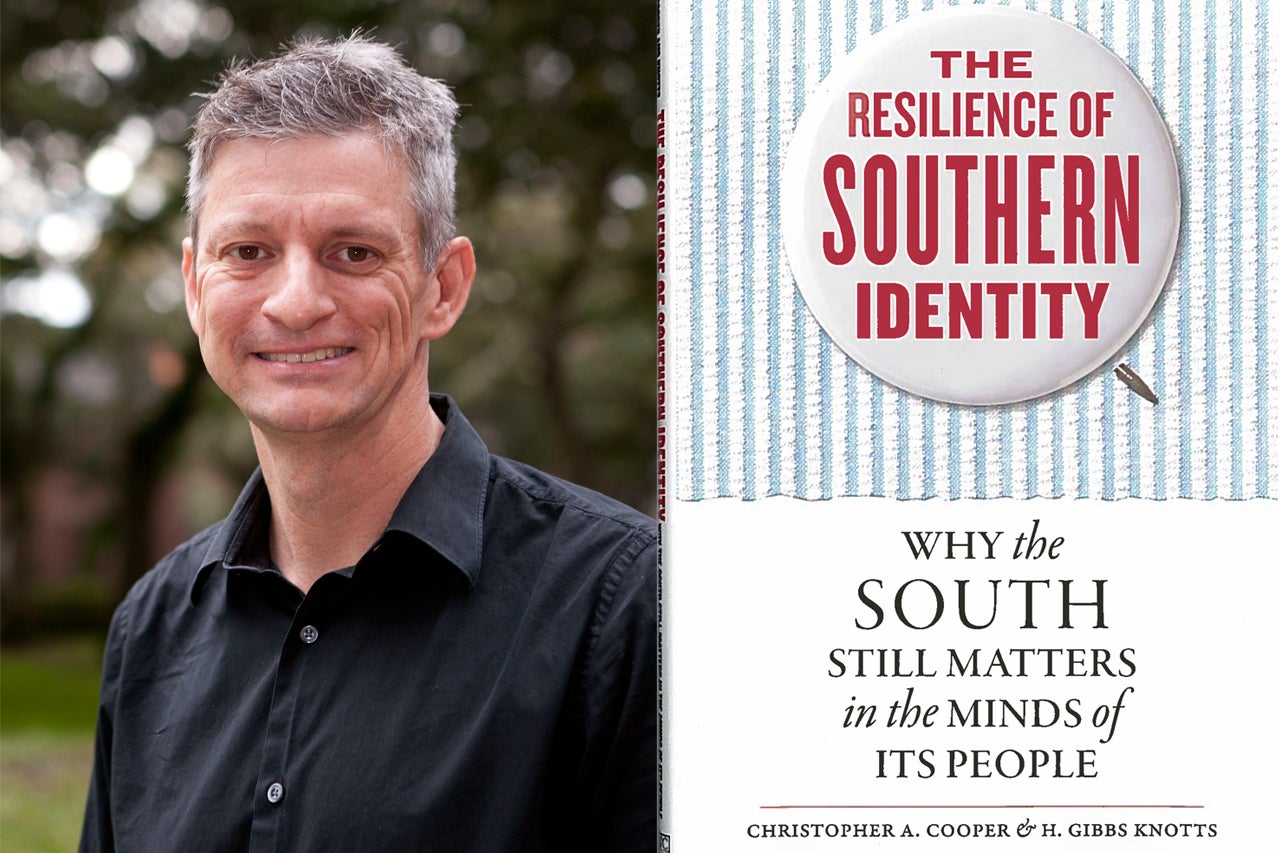There is something about the South.
Maybe it is the weather, the food, the culture, the politics or racial history. Maybe it is a combination of all those factors. Whatever it is, there seems to be a strong and inseparable bond between the American South and its residents and expatriates.

Gibbs Knotts
As a student at the University of North Carolina in the 1990s, Gibbs Knotts developed a strong interest in the South.
“I’ve been both embarrassed and proud of my home region, and I wanted to know more about why people do and do not identify as southerners,” he says.
That quest for answers has now turned into a new book.
Knotts, now the chairman of the political science department at the College of Charleston, has released The Resilience of Southern Identity: Why the South Still Matters in the Minds of Its People (University of North Carolina Press, 2017). Along with co-author Chris Cooper of Western Carolina University, Knotts conducted original surveys, interviews, and focus groups to find out more about what southerners think of their homeland. The focus group research was supported by the College’s Joseph P. Riley Center for Livable Communities.
Cooper and Knotts discovered that despite the region’s drastic political, racial and cultural changes in the past, southern identity is alive and well.
“We were surprised that even in the contemporary era, three of four people living in the South consider themselves to be a ‘southerner.’ To our surprise, African-Americans living in the South are even more likely to identity as southerners than are whites,” says Knotts
When they drilled down with more specific questions, they discovered a split in some of the perceptions of southerners.
“Our focus groups were particularly helpful at better understanding how blacks and whites talk about southern identity,” says Knotts. “Food, family, and landscapes unite black and white southerners. Politics and views on past racial struggles, including opinions about the Civil War, are more divisive. We also talk about ‘the dark side of southern identity’ in our book and outline times in history when regional identity has been used to divide racial groups.”
So why is there such a strong southern identity?
“It’s a somewhat counterintuitive finding,” says Knotts. “We expected that in-migration, urbanization, and a big increase in technology would make regional identity less important. We find that a connection to the South has continued and may have even gotten stronger in some areas. We think there are two main reasons regional identity has remained resilient. First, being a southerner is now a more inclusive term and the connection to the Old South has become much less a part of what it means to be a southerner. Second, increasing mobilization in society exposes southerners to more people from outside the region and makes them more aware of regional differences.”




